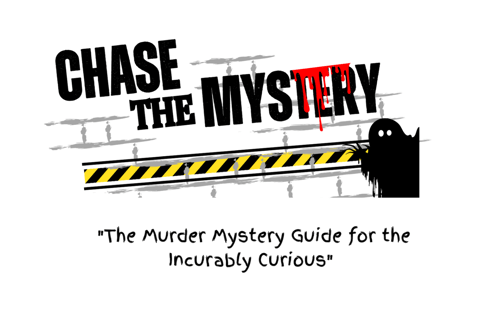
Get Your Chase The Mystery Merch
Why Reading Murder Mysteries Boosts Critical Thinking
Discover how reading murder mysteries boosts critical thinking, sharpens your mind, and enhances creativity while keeping you entertained. Dive into the mystery genre!
PERSONAL DEVELOPMENT
12/23/20244 min read


Murder mysteries have captivated readers for generations, from classic whodunits to gripping psychological thrillers. Beyond their addictive plots and suspenseful twists, these stories offer more than just entertainment. They serve as a brain workout, enhancing critical thinking skills and fostering mental agility. In this blog, we’ll explore how diving into the world of murder mysteries can sharpen your mind and why you should consider picking up your next detective novel.
The Allure of the Mystery Genre
Why Do We Love a Good Mystery?
Murder mysteries tap into our innate curiosity. Humans are natural problem-solvers, drawn to puzzles and enigmas. The genre allows us to indulge this instinct, challenging us to untangle intricate narratives and deduce the culprit.
These stories also play on our love for justice. We root for the detective or amateur sleuth, aligning ourselves with their pursuit of truth. This emotional investment keeps us engaged and encourages us to think more critically about the clues presented.
A History of Crime Fiction
From Agatha Christie's iconic Hercule Poirot to modern bestsellers like Gillian Flynn’s Gone Girl, murder mysteries have evolved with the times. Despite changes in style and complexity, the essence remains the same: a compelling puzzle that demands to be solved. This enduring popularity underscores the genre's unique ability to engage readers’ intellect.
How Murder Mysteries Improve Critical Thinking
1. Engaging with Complex Narratives
Murder mysteries are rarely linear. They involve intricate plots, multiple characters, and layered motives. Following these stories requires focus and analysis. Readers must pay attention to small details, connect disparate clues, and predict outcomes.
This engagement mirrors the process of critical thinking in real life:
Analyzing Information: Understanding the significance of evidence or character behavior.
Synthesizing Ideas: Piecing together different elements of the story to form a cohesive theory.
Evaluating Conclusions: Assessing whether your guesses align with the eventual reveal.
2. Recognizing Patterns and Clues
Murder mysteries train readers to spot patterns. Whether it’s a recurring phrase, an overlooked detail, or a suspicious alibi, these stories reward keen observation. Over time, this skill spills into everyday life. Readers become more adept at noticing inconsistencies, whether in conversations, workplace scenarios, or even media consumption.
3. Practicing Empathy Through Character Analysis
Understanding motives is central to solving any mystery. This requires delving into the psychology of characters:
Why would someone commit the crime?
What personal struggles or desires might drive their actions?
How do their behaviors fit within the story’s framework?
By empathizing with fictional characters, readers enhance their ability to understand real-world perspectives, a key component of critical thinking.
4. Improving Memory and Attention to Detail
Solving a mystery requires remembering key details from earlier in the story. Who said what? When did a particular event occur? These mental exercises strengthen memory and help readers develop sharper focus, which are vital skills for critical thinking.
The Brain Benefits of Reading Murder Mysteries
1. Mental Stimulation
Engaging with a mystery activates various parts of the brain, from logical reasoning to emotional processing. This type of mental stimulation can improve problem-solving abilities and even delay cognitive decline.
2. Boosting Analytical Skills
When reading a murder mystery, you constantly analyze information. Was that statement a red herring? Could that seemingly innocent character have an ulterior motive? This analytical practice enhances your ability to evaluate real-world information critically, from reading the news to making important decisions.
3. Enhancing Creativity
Murder mysteries often push the boundaries of imagination. Twists, unconventional storytelling, and unique character arcs encourage readers to think outside the box. This boost in creativity is not only beneficial for artistic pursuits but also for innovative problem-solving in daily life.
How to Get the Most Out of Your Mystery Reading
1. Take Notes or Keep a Reading Journal
For a deeper dive into critical thinking, jot down your thoughts as you read. Track clues, list suspects, and document your theories. This exercise can help you actively engage with the story and refine your analytical skills.
2. Discuss with Fellow Readers
Joining a book club or discussing mysteries with friends can enhance your perspective. Hearing others’ interpretations broadens your understanding and introduces new ways of thinking about the story.
3. Challenge Yourself with Different Subgenres
The mystery genre is vast. Experiment with:
Classic whodunits: Like Agatha Christie or Arthur Conan Doyle.
Police procedurals: Such as Michael Connelly’s The Lincoln Lawyer.
Psychological thrillers: Like Paula Hawkins’ The Girl on the Train.
Each subgenre offers unique challenges that sharpen different aspects of your critical thinking.
Why You Should Read More Murder Mysteries
1. They’re Incredibly Satisfying
There’s nothing quite like the “aha!” moment when you solve a mystery before the protagonist—or the shock of an unexpected twist. These moments provide a rush of satisfaction, reinforcing your problem-solving efforts.
2. They Offer a Safe Environment to Explore Complex Ideas
Murder mysteries often delve into dark or taboo topics, from betrayal and greed to justice and morality. By exploring these themes in a fictional setting, readers can grapple with complex ideas without real-world consequences.
3. They Make You a More Engaged Reader
Unlike some genres that allow for passive consumption, murder mysteries demand active participation. This habit of engagement can translate to other areas of your life, making you more present and attentive.
Recommended Murder Mysteries to Get Started
For Beginners
The Mysterious Affair at Styles by Agatha Christie
The No. 1 Ladies’ Detective Agency by Alexander McCall Smith
For Fans of Twists and Turns
The Silent Patient by Alex Michaelides
Big Little Lies by Liane Moriarty
For Psychological Thrills
Sharp Objects by Gillian Flynn
Behind Closed Doors by B.A. Paris
For Modern Whodunits
The Thursday Murder Club by Richard Osman
An Unwanted Guest by Shari Lapena
Final Thoughts: Exercise Your Mind with Murder Mysteries
Reading murder mysteries isn’t just a guilty pleasure—it’s a productive way to boost your brainpower. These stories engage your critical thinking, improve memory, and encourage empathy, all while keeping you entertained. So, the next time you’re looking for a new book, consider picking up a murder mystery. Your mind will thank you, and you might just solve the case before the final chapter!
What’s your favorite mystery novel? Reach us on social media and let’s swap recommendations for our next thrilling read!


